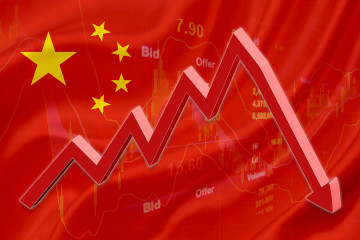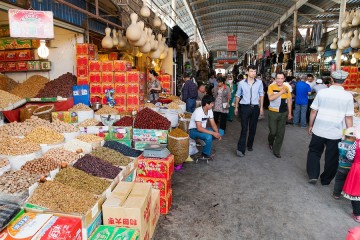Coffee Goes From First to Worst as Hedge Funds Hold Short Bets
©2015 Bloomberg News
NMPJX96K50XS
(Bloomberg) — Coffee, last year’s best-performing commodity, is now the worst thanks to the return of rains in parched growing areas of Brazil. Showers in February and March brightened the outlook for crops that will start being collected in May. With more coffee on the way, exporters are now shipping more from inventories to make room. Hedge funds have bet on lower prices for six weeks, the longest stretch in more than a year. Bull-to-bear market gyrations spurred by changing weather in Brazil, the top producer and exporter, made coffee the most volatile commodity in the past year. Prices surged 50 percent in 2014 amid a drought. Improved conditions pushed futures down 17 percent since December, the biggest loss among the 22 components of the Bloomberg Commodity Index. “As the stress of drought recedes, it looks like the harvest could be better,” Frances Hudson, a global thematic strategist who helps oversee $383 billion at Standard Life Investments in Edinburgh, said by phone April 9. “It seems an entirely rational move” to hold short bets, she said. The net-bearish position in coffee was 4,613 futures and options in the week ended April 7, U.S. Commodity Futures Trading Commission data show.
Prices Slide
Arabica coffee on ICE Futures U.S. in New York fell 2.2 percent last week, as the Bloomberg Commodity Index slipped 0.2 percent. The MSCI All-Country World Index of equities rose 1.9 percent and the Bloomberg Dollar Spot Index added 1.8 percent. Brazil exported the most unroasted coffee in March for the month since at least 1990, data from exporters’ group CeCafe showed last week. A tour of the country’s growing region showed that “plants looked quite lush and strong,” Christian Wolthers, the president of Fort Lauderdale, Florida-based importer Wolthers Douque, said in a report April 9. Wolthers estimates the nation’s 2015 arabica harvest will rise 12 percent to 34.2 million bags from a year earlier. A bag weighs 60 kilograms, or 132 pounds.
‘Worsening Conditions’
While showers in March revived crops, dry weather returned last week, leading to “worsening conditions” for plants in some areas, MDA Weather Services said April 7. Trees will struggle to rebound from 2014’s drought, which was the worst in decades. The region is still in need of greater rainfall, especially with the dry season starting later this month, World Weather Inc. said April 2. Gains for demand will also tighten supplies, even as Brazil’s harvest rebounds. Global coffee consumption will climb 3.7 percent this year, a fourth consecutive increase, the U.S. Department of Agriculture forecasts. “Coffee is either at or near a bottom,” Lara Magnusen, a La Jolla, California-based portfolio manager at Altegris Investments Inc., which oversees $2.65 billion, said by phone April 9. “There’s just universally strong coffee demand that’s not going away soon. When you have that strong demand coupled with the weather, that’s not so great. You’re going to have supply disruptions.”
Global Stockpiles
More supply from other producers can help to make up for losses suffered in Brazil. World inventories climbed 54 percent in the 24 months that ended Sept. 30 for most countries, USDA data show. Stockpiles tracked by ICE Futures that are coming from Colombia, the second-largest arabica grower, more than doubled this year to the highest since 2008. In Honduras, the largest producer and exporter in Central America, exports jumped 38 percent in March from a year earlier. For Brazil’s shippers, the incentive to sell more overseas has increased in the past few months even as coffee futures fell because budget deficits and a stalled economy sent the real plunging against the dollar. Exports are usually priced in the U.S. currency. “Once it gets closer to the Brazilian harvest time, you’re going to see more selling no matter where the market is,” Rodrigo Costa, a director of the coffee desk at Societe Generale SA in New York, said by phone April 9. “The market will be limited in the upside.”
To contact the reporters on this story: Luzi Ann Javier in New York at ljavier@bloomberg.net; Marvin G. Perez in New York at mperez71@bloomberg.net To contact the editors responsible for this story: Millie Munshi at mmunshi@bloomberg.net Steve Stroth







No Comment